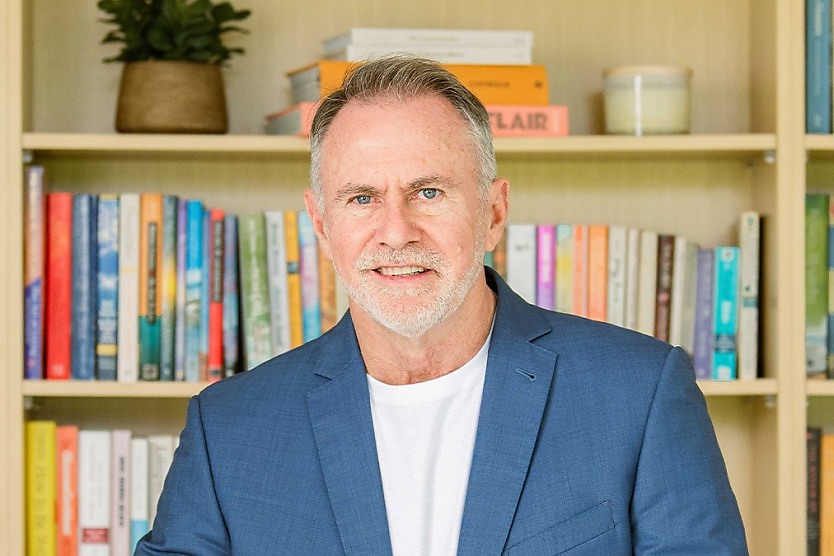4 things HR leaders can do right away to prepare for reinvention
SHARE THIS ARTICLE

Preparing for change requires intention and effort; reinvention is not an easy task, given every life-changing event is personal to us, affecting us on emotional, psychological, and physiological levels, writes Gary Waldon.
Leadership is often the reward for putting in the hard yards to get to where we are today. All those late nights, the sacrifices, and our commitment have led to this point in our careers, and we probably aren’t done yet. While there will be goals, aspirations and dreams we have for our future, life happens, and things change. These life-changing events could include a new promotion, a redundancy or, on a personal level, we may get married, separated, experience a health scare or move house. The list of potential life-changing events is endless; however, regardless of whether they are positive or negative, the result is the same, we need to reinvent ourselves.
As a transformation specialist, I have helped organisations and thousands of people successfully change to succeed in their new worlds. One common trait I see in people who successfully navigate change is their ability to master the art of reinvention. They can move beyond their old normal and adapt and thrive in their new normal in a planned way with purpose.
Not only do our lives and careers seem to be moving faster, but outside factors such as artificial intelligence (AI) are threatening our careers and our roles and impacting our personal lives. In a recent interview, Microsoft founder Bill Gates noted that most of today’s knowledge worker jobs will no longer exist in five years. If this prediction is correct, does this mean that all the hard yards and commitment to our careers and specialty fields will make us redundant in our own lives? Preparing for change requires intention and effort; reinvention is not an easy task, given every life-changing event is personal to us, affecting us on emotional, psychological, and physiological levels. Here are four things you can do right away to prepare yourself for reinvention:
- Build your reinvention mindset. Change takes us into the world of the unknown, and with any unknown often comes an increased fear of failure. Research shows that 60 per cent of people will not follow their dreams due to their fear of failure. Accepting that change is part of life strengthens our growth mindset and helps avoid sending us into a dark spiral. Knowing we have faced life-changing events before and successfully adapted to our new normal gives us the confidence that we will be able to reinvent ourselves and reduce the fear of stepping into the unknown.
- Empower yourself. One of the things that leads to us becoming stuck, unable to change, is that the parts of our world no longer exist, making the habits we relied on to thrive irrelevant and outdated. The feeling of being disempowered often presents itself as feeling lost, out of control and yearning for the good old days. The best way forward is to empower ourselves by approaching reinvention with intention and a plan. This starts by doing a brutally honest reality check of who you are, what led to this point, and what you want to take forward into the next version of yourself. Empowerment can start by exploring mentors and case studies that may help point you in the right direction. However, like any art, reinvention requires our approach to be adapted to fit our uniqueness, based on our unique experience, mindset and beliefs.
- Action is key to reinvention. Research and analysis are great, but nothing beats doing something, anything. As we step into the unknown, armed with our reinvention mindset, we expect we will take missteps and fail at multiple points along the way. Failure is inevitable, so expecting it prepares us to learn from it and adapt so we can take our next step better informed, improving our chances of success.
- Enjoying the process and being present is the final element to preparing for reinvention. Life-changing events often cause us to look longingly backward into the past or forward into the future rather than just be present. The problem is that the past no longer exists and can’t be changed, and the future hasn’t happened and probably won’t play out how we think it will. So, the only reality is the here and now, so we may as well enjoy it. Maintaining a positive mindset and having fun along the way helps reduce the inevitable pressure and stress that comes with reinvention, allowing us to remain open to new opportunities and ideas.
Leadership is about being strategic and authentic and guiding our team to keep performing into the future. While this often means leading the way, we need to be kind to ourselves. I can tell you that despite successfully delivering change for thousands, I hate change I am not able to control. This is where the art of reinvention becomes critical; it empowers you with a structured approach to thriving in a world of uncertainty.
Gary Waldon is the bestselling author of Mastering the Art of Reinvention. He is a transformation specialist who works with people at all levels, from CEOs, CIOs, business leaders, and professional athletes to teachers and anyone who needs to reinvent themselves when life changes.
